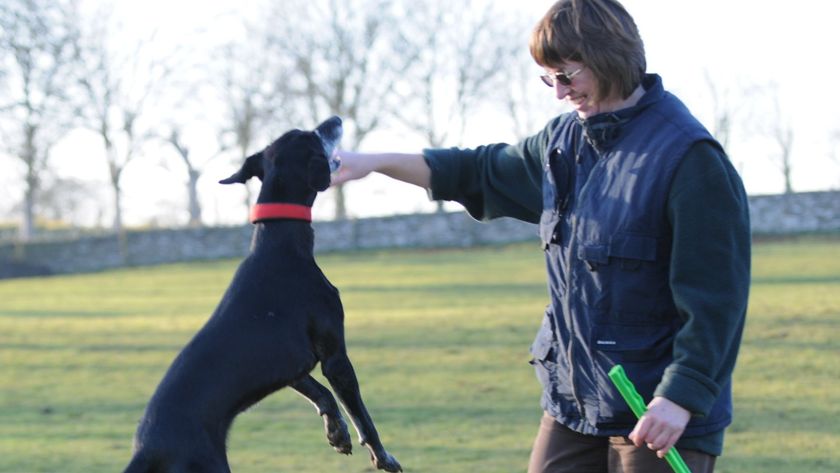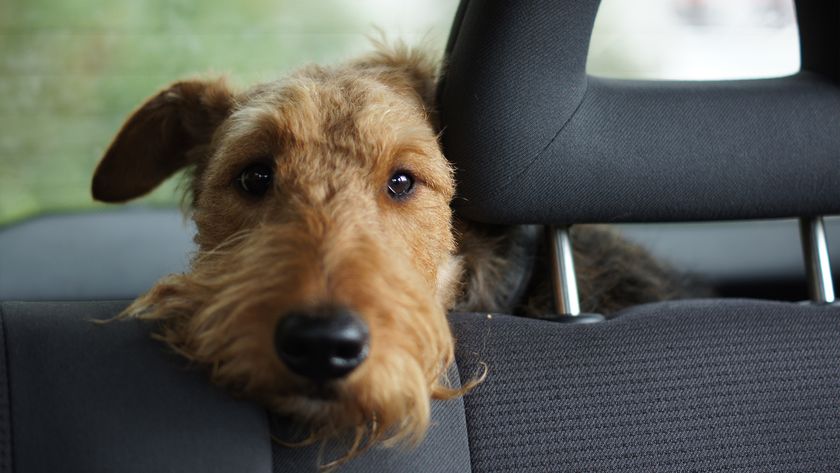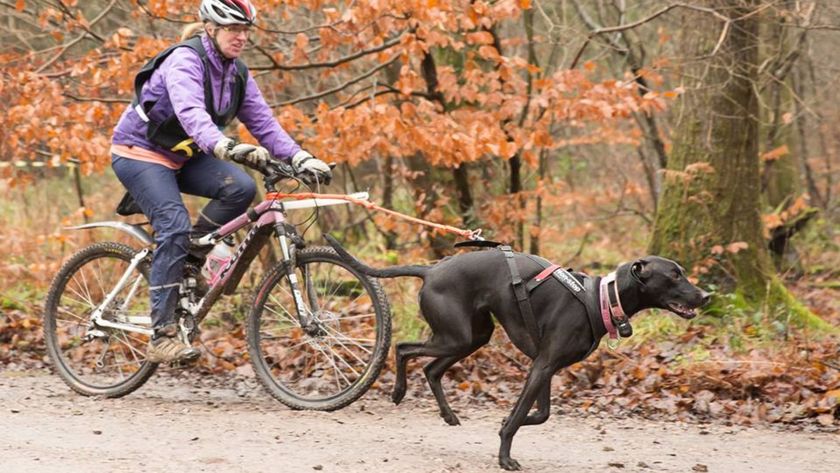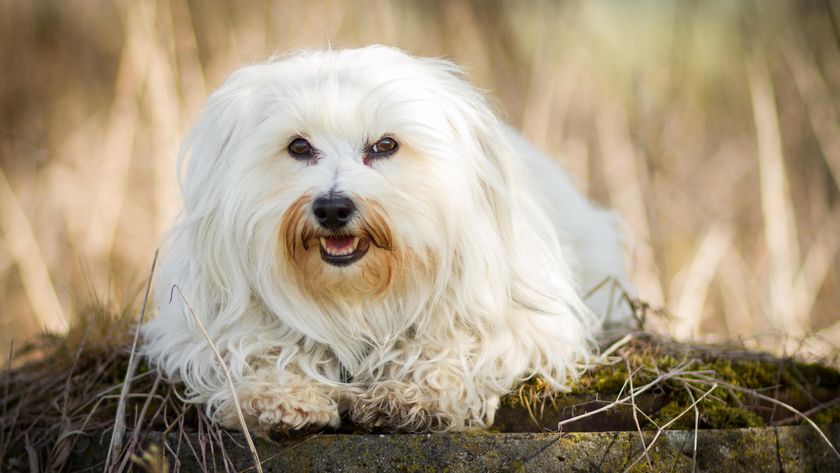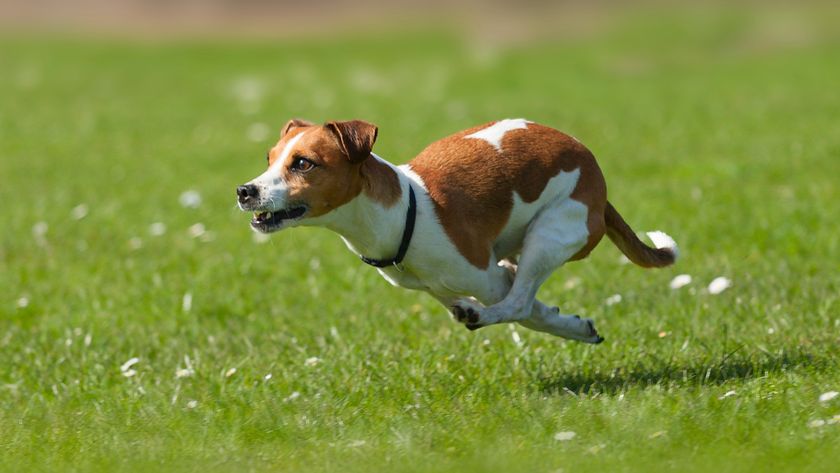Why do dogs howl at sirens? I’m a behaviorist, here’s the answer
Are you wondering, ‘Why do dogs howl at sirens?' Here’s why they do it and my top tips for stopping it.
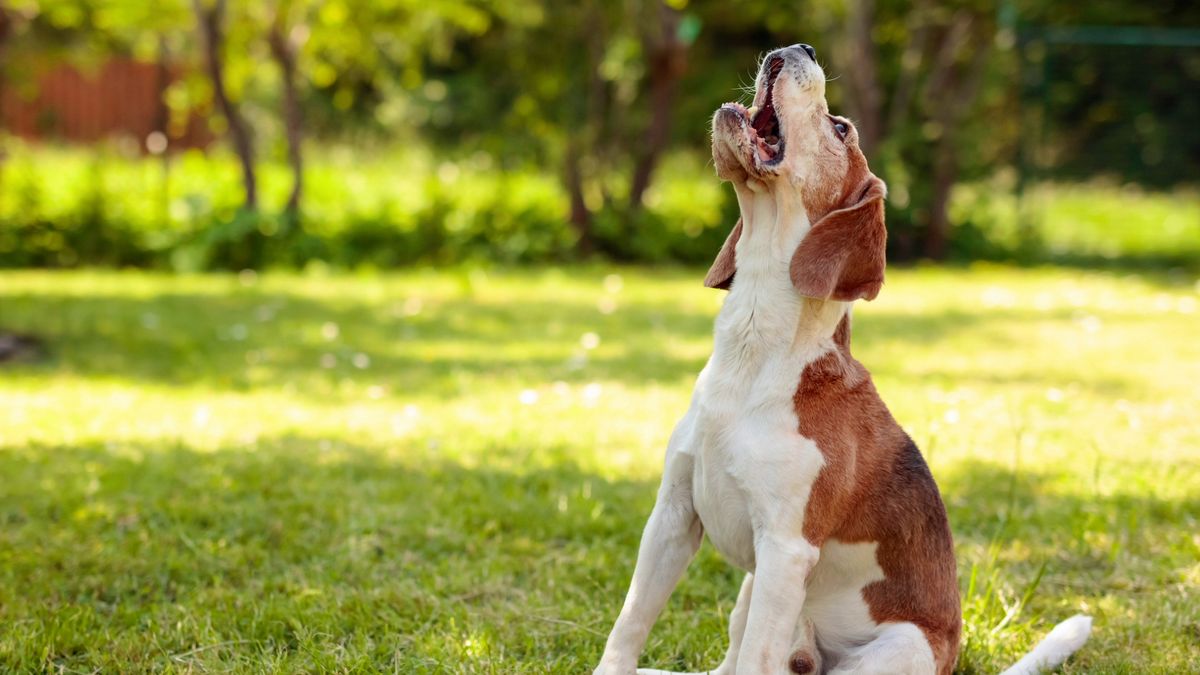
When I first qualified as a dog behaviorist, I often wondered why do dogs howl at sirens. Since 2012, I've worked with many dog breeds and observed that some howl more than others.
My fiancé and I organized canicross events for over six years. We often had around 150 dogs on-site during event weekends. The dawn chorus of synchronized howling always started with specific breeds, but others joined in.
As a behaviorist, it's my job to understand the meaning behind a dog's behavior. So, this article will explain why dogs howl at sirens, which breeds are more predisposed to howling, and whether sirens hurt dogs' ears. I will also include tips for how to stop the behavior.
There are several reasons why a dog might howl, and sometimes it could be stress-related. You might enjoy reading our guide to the best dog beds to help keep your dog cozy and secure when he's feeling anxious.
Why do dogs howl at sirens?
Some dogs may be scared of loud noises like a siren. Some woofers genuinely seem to enjoy howling as a fun activity. Let's find out more; here are five reasons why dogs howl at sirens:
1. It's a natural instinct
Dogs have exceptional hearing. When they hear a high-pitched, loud noise, they may feel like joining in with a good howl.
PetsRadar Newsletter
Get the best advice, tips and top tech for your beloved Pets
2. Feeling afraid of the siren
Sirens are loud and unpredictable. As the sound gets closer and the volume increases, it can cause a dog to feel scared or confused which can cause howling or barking. If you want to learn more about anxiety in dogs, this guide has everything you need to know.
3. To communicate with other dogs
Dogs naturally want to pass on important messages to other dogs. It's called social facilitation, which means that dogs respond to the behavior of other dogs. When one dog responds to a noise in the neighborhood, other quickly joins the party.
4. Your dog wants to warn you about danger
Even though you can hear the siren, your dog may feel compelled to start howling to warn you about the noise.
5. Your dog could be having fun
For some dogs, barking or howling can be self-reinforcing, and they start enjoying it. They love it even more when their owners join in by shouting!

What breed of dog howls at sirens?
These dog breeds are more likely to howl at sirens:
1. Huskies
Huskies love to howl and don't need much of an excuse to start singing. We often had as many as 60 huskies attend our canicross event. Imagine the noise of 60 huskies howling at 5am!
2. Beagles
Beagles are vocal dogs with a unique range of sounds. They love baying and howling. If you own a beagle, the entire neighborhood will know about the approaching siren. If you're considering bringing a beagle into the family, you might enjoy reading our beagle breed profile.
3. Dachshunds
As a child, we had a dachshund who loved to howl to Bee Gees music! These little pocket rockets can be highly vocal and are likely to howl at sirens.
4. Basset hounds
Basset hounds are vocal woofers and love to sing along to loud or high-pitched noises, so don't be surprised if your basset hound joins in with the siren.
We know that wolves love to howl, but there are mixed schools of thought on whether dogs descended from wolves. According to Science Daily, wolves may likely be our domesticated dogs' ancestors, which could explain the howling.

Do sirens hurt dogs' ears?
Dogs can hear frequencies between 45,000 to 67,000 Hz compared to around 20,000 Hz for humans. They can locate sounds further away and rotate their ears towards a sound, which we cannot do. That means your dog probably hears the siren long before you do.
Some dogs have noise phobias triggered by loud bangs, sirens or high-pitched noises. So, although the short-term sound of a siren may not hurt their ears, dogs are more sensitive and potentially reactive to noise.
Watch your dog for shaking, lip licking, hiding, or lifting a front leg because he could be fearful of noise. For more advice on how to read dog body language, check out this useful feature.

How do I stop my dog howling at sirens?
Once you have identified the cause of howling, the next step is to focus on a training plan.
1. Avoid joining in with your dog
Avoid shouting at your dog because the additional noise often ramps up the howling. A negative response could reinforce their fear, or shouting may reward the dog if he feels you are "joining in".
2. Give your dog something to do
A phrase that stuck in my mind is, "You cannot teach a dog what NOT to do. You can only teach a dog what to do." To that end, try disrupting the behavior. Without making a fuss, offer a toy, a game of tug, or do something your dog usually enjoys.
3. Desensitize to noise
Many dogs do not like loud noises, like sirens and fireworks. A positive way to improve your dog's noise sensitivity is to use counter conditioning with gradual exposure to increase noise tolerance.
4. Teach your dog a quiet cue
Reward when your dog doesn't bark or howl. Even if there is only a few seconds of silence, show your dog this is the desired behavior. Once he understands what you want, add a vocal cue like "quiet."
5. Get help from a behaviorist
If you aren't making progress or your dog seems anxious about noises, it might help to work with a qualified behaviorist.
Merrick Power Bites Real Texas Beef Recipe Grain-Free Soft & Chewy Dog Treats
Looking for a tasty treat to reward your pooch with? These Texas beef bites are a great option, and are free from grain, corn, wheat and soy.
FurHaven Calming Cuddler Long Fur Donut Bolster Dog Bed
Always provide a comfortable bed where your dog can feel safe, like this super calming donut bed. It comes in a variety of colors and sizes, plus it's machine-washable.
Want more training tips like this? Discover 32 common dog behavior problems and solutions and learn about the 7 weird things that dogs do that are actually completely normal.

Jan is a dog behaviorist and writer living in the Cotswolds, UK. She has shared her life with dogs for over fifty years and is fascinated by behavior. She enjoys helping people better understand their dogs to develop a deep bond and enjoy time together. Jan particularly enjoys working with impulsive and reactive dogs as her legacy from helping Poppy, her rescue Weimaraner cross overcome fear reactivity.


